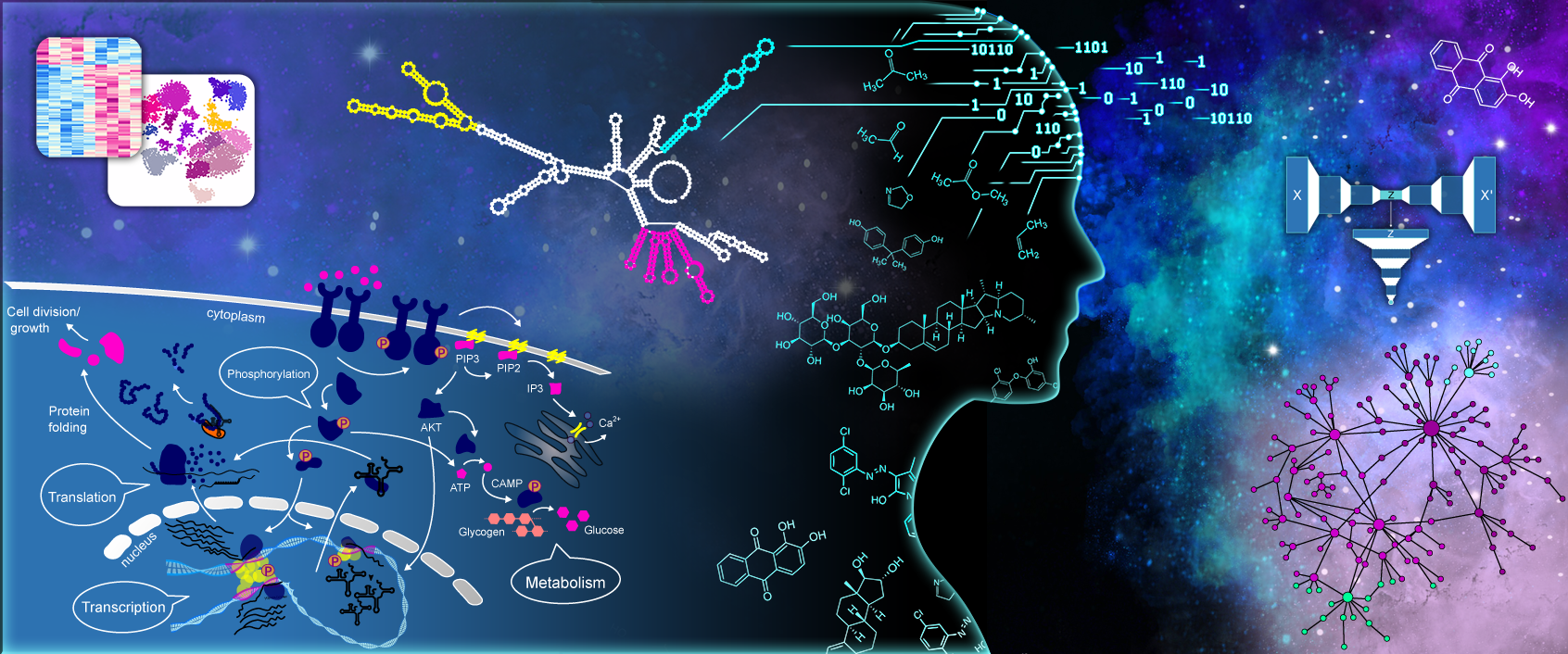
Image created by Jana Schor, 2022.
Department Computational Biology & Chemistry
Welcome to the Department of Computational Biology & Chemistry, a vital component of the Chemicals in the Environment (CITE) research unit (RU) at the UFZ. In our department, we develop bioinformatic, systems biological, and data scientific approaches to advance mechanistic understanding in toxicology and environmental health and establish predictive methods using this knowledge. Aiming to advance digitality in the RU CITE, we lead the development of in-silico products, collaborating with other departments to work towards a toxic-free environment.
Our research focuses on several key topics:
- Unraveling Adverse Mechanisms: We combine bioinformatic and systems biological methods to decode the complex mechanisms underlying adverse environmental effects.
- AI-based Approaches in Toxicology: Our team is dedicated to establishing AI-based methodologies to revolutionize toxicology and environmental health research.
- Knowledge Representation and Data Integration: We develop approaches for representing knowledge and integrating as well as enriching diverse data sets, which is vital for comprehensive environmental data science.
- Promoting Reproducible Research and Open Science: We are committed to meeting and promoting the principles of Reproducible Research, FAIR data, and open source code, ensuring transparency and reliability in our work.
- Toxicokinetic Modeling: We utilize experimental data and detailed physiological information to develop sophisticated toxicokinetic models describing the fate of chemicals in aquatic and terrestrial organisms.
- Avoiding Animal Testing: We strive to develop predictive tools and in vitro - in vivo extrapolation techniques to assess environmental behavior and toxicity, embracing the principles of the 3Rs (Replacement, Reduction, Refinement).
